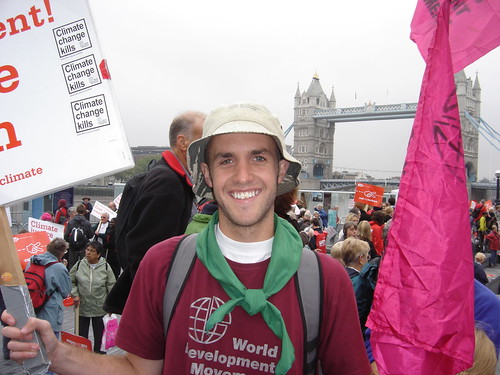I hope you have enjoyed what has been written. Climate change is not a complicated issue, but our society's dependence on fossil fuels means there has always been something to write about.
I'm sure the question the marchers will now be asked is: 'Was it worth it?'
We can never know all the effects of our campaigning actions. The world is too complex for that. But the threat of climate change is so great we can't not campaign.
However, this march will have been a failure if it has not inspired more people to campaign. The science is saying we are almost on the brink of runaway climate change. We have to act now. But we also have to continue campaigning year-after-year; no one protest, postcard or direct action can ever be enough.
Please join the World Development Movement so you can campaign with them on climate change and other issues of global justice, now and into the future:
www.wdm.org.uk/join
Join now - it's a better time than any other.
"We shall not give up the fight, we have only started."




